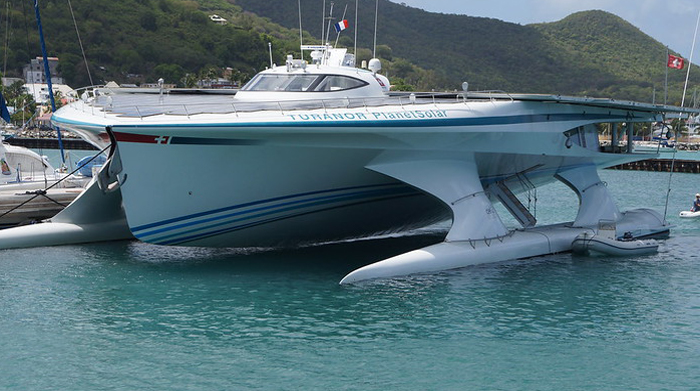How Electric Boats Might Impact the Power Grid

Image courtesy of Derek Hodge under Attribution-NonCommercial-NoDerivs 2.0 Generic License, resized to 700 x 391 pixels.
Forget about electric vehicles (EVs), there is a new type of vehicle that could have wide-ranging ramifications for the power grid – electric boats. I know, I know, I can almost feel your eyes roll, but hear me out. These new and emerging electric water vessels will definitely have an impact, the only question is – how much of an impact?
What are Electric Boats and How Will They Impact the Grid?
Electric boats are driven by a new and emerging type of technology. In the past, these vehicles would not have been efficient because the drag associated with travelling above cruising speed is so great that the battery-powered motor would be quickly depleted. But a startup called Candela aims to change all of that.
The company has perfected a hydrofoil technology that not only preserves energy, but also facilitates an extremely smooth and silent ride. Each e-boat has a 40-kWh lithium ion NMC battery pack that can be fully charged via a standard 3-phase outlet in just 2 short hours. And because the hydrofoil technology dramatically reduces the drag (to the point where it does not leave any wake), the battery is not only more efficient, but it can be much smaller and lightweight as well.
Each electric boat currently costs close to $400k, but experts believe the price tag will come down as the manufacturers improve their manufacturing processes and achieve economies of scale. And while consumer demand might seem like it will never achieve scale, the startups have their eye on commercial applications like water taxis which would open up entirely new markets.
As for the grid impact, most recreational boating occurs in more remote areas that have less grid infrastructure. This means that the e-boat industry growth will require grid upgrades – utilities will need to scale up grid infrastructure and deploy grid enhancing technologies along shorelines and near marinas to meet the inevitable demands of electric boats, which are expected to grow along a similar trajectory as electric cars.
Time will tell what impact electric boats will really have on reliability, but it is definitely something that we all need to keep tabs on and, if necessary, adapt to the changes.



